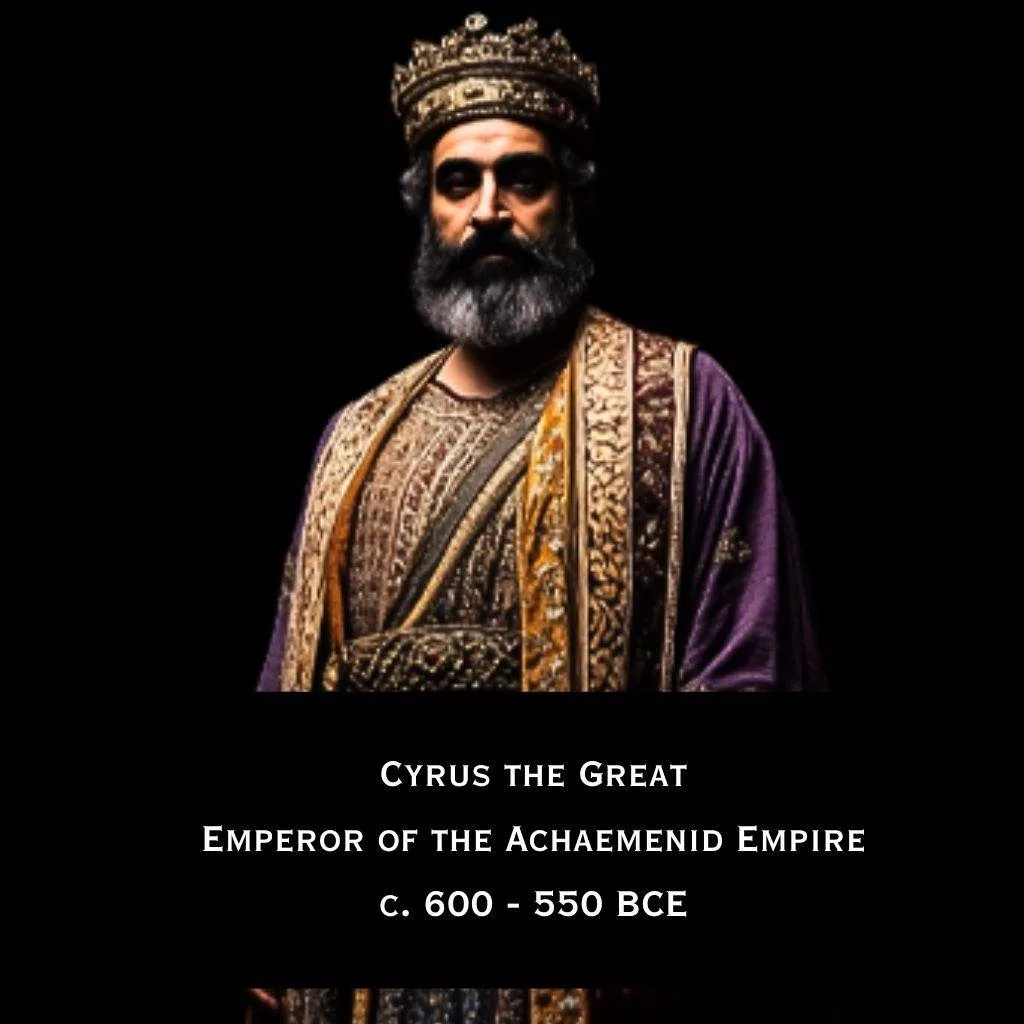
Cyrus the Great (600–530 BC), the founder of the Achaemenid Empire, established the first Persian Empire by uniting the Medes and Persians under one rule. Born in Anshan, Persia, he rose to prominence through strategic diplomacy and military prowess. His most notable conquests include defeating the Median Empire, the Lydian Kingdom, and the Neo-Babylonian Empire, where he famously liberated the Jews from captivity and allowed them to return to Jerusalem.
Cyrus is celebrated not only for his military successes but also for his forward-thinking policies of governance and religious tolerance. He is considered one of the first leaders in history to endorse human rights, as recorded on the Cyrus Cylinder, a document often described as the first charter of human rights. His legacy has shaped the governance of future empires, emphasizing respect for diverse cultures and religions.
Cyrus died in 530 BC, reportedly in battle against nomadic tribes near the Syr Darya River. His empire, the largest the world had seen at that time, remained a model for future civilizations regarding administration, justice, and respect for human dignity.
– Name: Cyrus the Great
– Born: Kurosh, c. 600 BC, Anshan, Persia
– Died: 530 BC, near the Syr Darya River
– Age: 70
